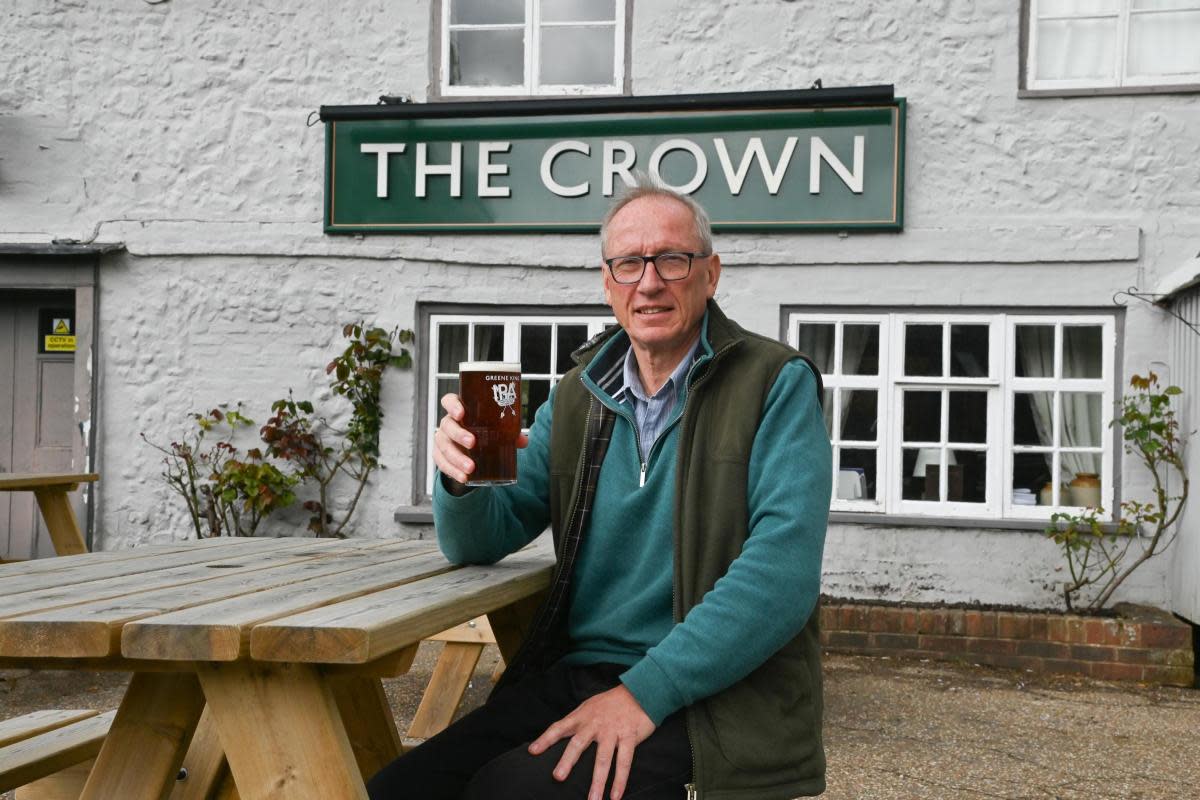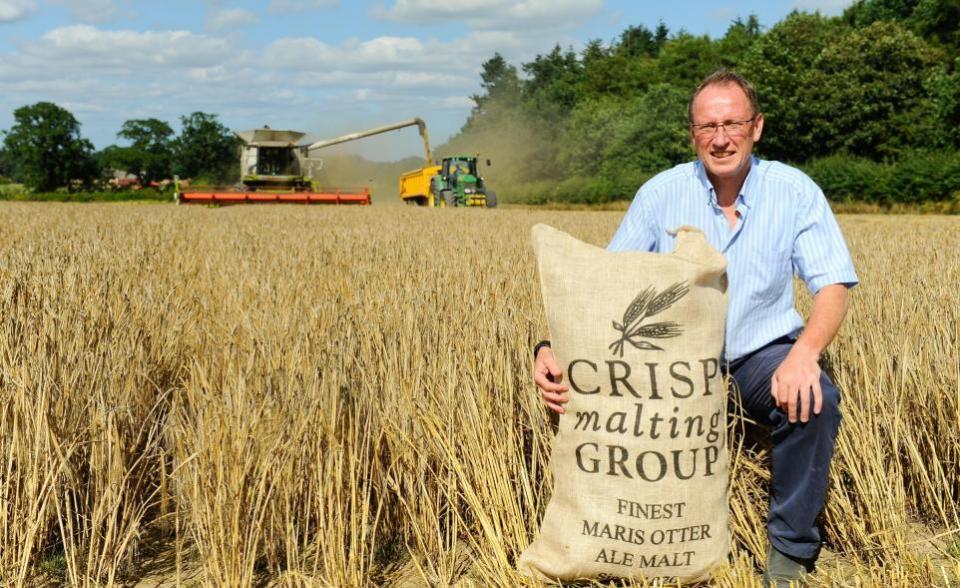Award honour for proud champion of Norfolk's world-famous beer-making barley

A former maltings boss who helped forge Norfolk barley's global reputation as an ingredient for beer and whiskey has been honoured with a major industry award.
Retired Crisp Malt commercial director Bob King is the 2024 winner of the coveted Timothy Colman Prize, awarded annually by the Royal Norfolk Agricultural Association (RNAA) for an outstanding contribution to the county's food and farming.
Mr King, who lives in Gayton, near King's Lynn, said he was "proud and overwhelmed" by the industry recognition.
During his 35-year career at the Crisp maltings in Great Ryburgh, near Fakenham, he helped Norfolk malt grow into a world-renowned commodity, and also encouraged efforts to revive traditional varieties such as Maris Otter, revered by craft brewers around the globe.

Former Crisp Malt commercial director Bob King pictured in a barley field at harvest time (Image: Crisp Malt)
But he said the proudest achievement was the formation in 2007 of the ABC grower group - a partnership between Crisp and two Norfolk grain merchants, Adams and Howling and H Banham.
By fostering collaboration and communication between growers, grain merchants and maltsters, a long-term, sustainable supply line was created to meet the specific, changing demands of customers around the world - as consumer tastes moved from ale to lager, followed by a boom in whisky distilling and the emergence of the craft brewing sector.
"It changed the way that malting barley in this area was traded and got away from this 'us and them' situation," he said.
"It was about getting the message out about what the end market wanted. 20 years ago, most farmers hadn't got a clue where their product was going when it left the farm gate. They waved away £3,000-£4,000 worth of goods and had no idea where it was going.
"So we told the merchants and growers we wanted to work in partnership. We said: 'We know you can produce the best malting barley in the country, so rather than being too prescriptive about saying: 'You must grow X, Y and Z', we told them what the market wanted, which varieties work best for our process, and set a wide range of target specifications. It was all about quality.
"We needed that communication, but it had to be a two-way thing. It had to be a partnership.
"We had to work with the growers, and look at those parameters if necessary. There is only one crop, so we are not looking to go elsewhere for it.
"Our sales people then had a story to tell. 'They could say: Look, we can give you the provenance and the sustainability', whether they were talking to brewers in the UK or Japan, or craft businesses in the US."
He added that promoting the need for better communication across Norfolk's agricultural industry was something he was keen to pursue during his retirement.
Mr King didn’t come from a farming or countryside background. After growing up in Cambridgeshire and studying geography and economics at Queen Mary University in London, he came to Norfolk with his wife Pauline, and after a brief spell in the seed trade he got a job in the early 1980s as a trainee malting barley trader for Dalgety in King’s Lynn.
He joined Crisp Maltings as a malting barley buyer at Great Ryburgh in 1988, and was commercial director for more than 20 years before he retired on his 65th birthday last summer.
"It was always such a friendly part of the industry," he said. "There is the mystique of barley and beer and you have always got something to talk about. Malting barley is different from year to year, you’ve got the brewing scene and distilling, and we had the corn markets - Bury St Edmunds on a Wednesday, Diss on a Friday during the harvest.
"It has always been about the people for me, that has been the most enjoyable part of it. I have got lots of friends in the business, and it is the only part of the grain trade where you talk to your competitors.
"A lot of growers have a warm spot for growing malting barley. I think it is the link to the beer. Yes, they might grow wheat for bread or animal feed, but then they go to the pub, so malting barley is always something they talk about."
Mr King has held senior industry positions including chairing the trade committee of the Maltsters' Association of Great Britain and the Malting Barley Committee, which tests and approves new barley varieties for the malting industry.
His award was announced at the RNAA's AGM, where managing director Mark Nicholas said Mr King had been instrumental in making malting barley "an international success story over the past four decades".
"Bob King played a key role in reviving the fortunes of malting barley grown in Norfolk and further afield," he said. "His vision of working collaboratively with farmers, grain merchants and seed breeders built a partnership model which thrives today, and raised the profile of Norfolk's malting barley."
Mr King replied: "I have had a fantastic career. We have got the best malting barley in the world, and even in my retirement I would like to carry on promoting Norfolk farming, Norfolk beer and whisky."

 Yahoo News
Yahoo News 
